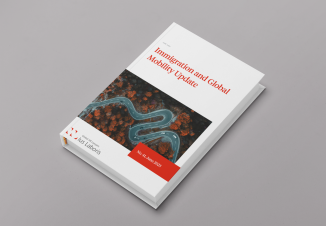
The employee at the centre of the dispute was an office assistant at the Tamil Nadu Grama Bank, as well as a trade union activist. In August 2022, he was suspended from duty by his employer on the grounds that he had sent messages in a private WhatsApp group mocking decisions taken by the bank’s managers and belittling his superiors. Though the suspension was stayed by order of the Court, the employer sought to pursue disciplinary action against the employee, which the employee challenged. The employer argued that the messages sent by the employee contravened the Bank’s social media code of conduct.
The code of conduct stated that ‘[n]o employee shall write/express anything in any internet site or social media that may damage the reputation of the Bank or any of its employees[,] post/express any remarks/views in any internet site or social media which may be defamatory to the Bank or officials or its employees in their official capacity[, or] criticize the management of the Bank or the business processes or strategies of the Bank or policies of the Bank’.
The employee admitted posting the messages in question, and had apologized to the Court for their impolite character. However, he argued that the messages were sent to a private group that existed to assist in organising trade union activities.
In a forceful judgment delivered from the bench, Mr. Justice Swaminathan upheld the employee’s challenge. While he stopped short of striking down the Bank’s social media code of conduct in its entirety, he held that its provisions did not apply in the case at hand. He referred to workers’ fundamental right in Indian law to participate in trade union activities, their fundamental right to privacy and their right to free speech.
The Judge noted that employees have a ‘right to vent’, and that respecting this right was ultimately to the employer’s benefit, due to its cathartic effect. As long as the messages were not unlawful, employees cannot be penalised for misconduct merely for expressing their views on what was a private chat. He put the matter in the following terms:
The Judge alluded to the possibility of a mole and snooping, going on to uphold the employee’s challenge.
The Court’s decision will be useful for employers who are considering taking action against employees for alleged misconduct using ‘snooped’ material. Particular care should be taken in conducting the disciplinary process for all such sensitive issues, taking proper account of employees’ fundamental rights.
It should also be noted that the decision provides an interesting counterpoint to a recent case from Germany, where the Federal Labour Court decided that if sufficiently offensive messages were posted to a private group chat, it would be for the employee involved to show why they should be entitled to expect the messages to remain confidential. In the Indian context at least, it appears that private messages may well attract legal protection, as long as they are not so serious as to be unlawful.
To find out more about dismissal protections



